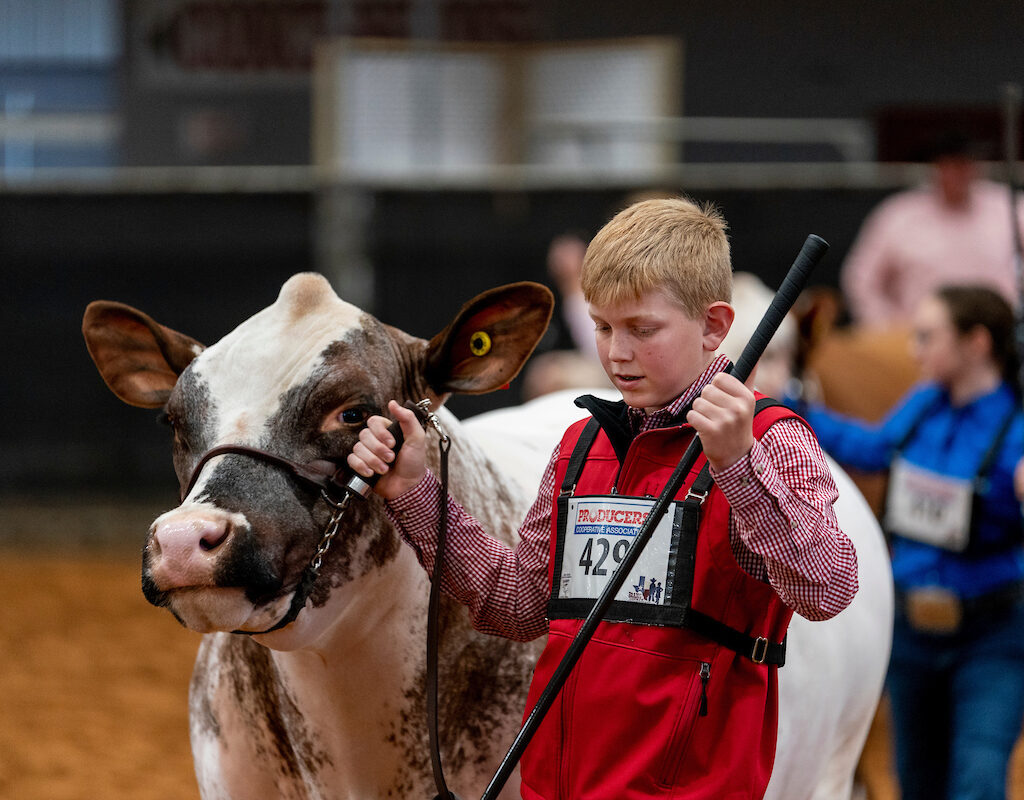Agrilife Extension Resources
4-H is the nation’s largest youth development program. Through local 4‑H programs, kids and teens learn valuable life skills and participate in project areas like health, science, agriculture and civic engagement. In Texas, the 4-H program is administered by the Texas A&M AgriLife Extension Service and Prairie View A&M Cooperative Extension Service.
>>> Visit the Texas 4-H website here
Related Departments: Agricultural Leadership, Education and Communications, Animal Science, Nutrition, Horticultural Sciences

- Course
This course is designed for 4-H and FFA members participating in livestock projects. The primary objectives are to enable students to understand the relationship between good character and safe food practices and to apply knowledge regarding the ethical implications of livestock-raising decisions.
- Course
This course is designed for 4-H and FFA members participating in livestock projects. The primary objectives are to enable students to understand the relationship between good character and safe food practices and to apply knowledge regarding the ethical implications of livestock-raising decisions.
- Course
This course is designed for 4-H and FFA members participating in livestock projects. The primary objectives are to enable students to understand the relationship between good character and safe food practices and to apply knowledge regarding the ethical implications of livestock-raising decisions.
- Course
This course provides information for certified child passenger safety technicians who wish to stay current in their technical knowledge. The course, presented in video format, features instructor and LATCH Manual author Denise Donaldson. This course is approved for 1 CEU towards the required 6 CEUS for re-certification.
- Course
This session will cover the proper use of LATCH by exploring the LATCH Manual, revealing more about its potential to help you educate caregivers accurately and efficiently. The session will delve into the many uses for Appendix A, B and C, with particular focus on new and/or updated information in the latest edition of this resource.
- Course
Discover Positive Youth Development (PYD) with our comprehensive three-and-a-half-hour online course. Designed for a wide range of youth-facing professionals, this course offers interactive modules that bring PYD theories to life.
- Course
This session will explore the topic of using car seats in smaller vehicles. Some vehicles just aren’t suited for car seat use, while other times we can make adjustments to the vehicle and/or select certain car seats to improve compatibility. And, naturally, when multiple car seats are used in one vehicle, fit can become a problem, even in vehicles that aren’t considered tiny. Technicians will learn about general tips and explore some specific examples.
- Course
A discussion of car seats priced under $150 using a popular interactive game format to explore the different seats available and their features including specifics about their weight and height limits.
- Course
This session discusses child restraint energy management, including load legs, European shoulder belt routing, anti-rebound features, crushable frames, internal side-impact protection, external side impact protection, and more. The course features instructor Joe Colella and is approved for 1 CEU towards the required 6 CEUs.
- Course
A discussion of the effects of common misuse and combinations of misuse and its effect on pediatric injury. An analysis of the data was done to show which misuse is most dangerous for the different types of restraints including a comparison of injuries to children when using optimal restraints, suboptimal restraints and when unrestrained to see if the data supports current best practice recommendations.